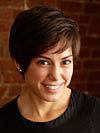What does it mean to “count”? To count can mean to tally items to determine the total—as in, the teacher counted her students. To count can also mean to have merit, importance or value—as in, every little bit of help counts. In Parashat Ki Tisa, God instructs Moshe to count the Jewish people. Men over the age of twenty are included in this census, and each is commanded to donate a half-shekel, which is used for the construction and upkeep of the Tabernacle.[1]
This census accomplishes several goals. On the most basic level it determines the number of adult Israelite men[2] and raises funds to support an essential religious and communal institution. But more significantly for us, it provides a model for creating a healthy, participatory society. That each man contributes a half, rather than a whole, shekel symbolizes that no person is a complete unit on his own; rather, we become whole by contributing to the community at large,[3] and in turn, the success of our societies is based on the sum participation of individual members. The census also teaches that it is precisely by giving and becoming part of something larger than oneself that an individual counts, or, in other words, matters. As Rabbi Samson Raphael Hirsch, the 19th-century German leader and religious thinker, says: “the significance of each and every member of the nation and that of the nation as a whole, consists in the contribution made by each.”[4]
However, as we know, the census is not as inclusive as its message implies: women are left out. And we need to look ahead only two chapters to the disastrous episode of the golden calf to see that a community that does not empower half of its population cannot be successful in the long run. According to the midrash, the women of Israel object to the idolatrous project and refuse to donate their jewelry to the frenzy; yet they lack the power to intervene, and their husbands have to physically rip their earrings from their earlobes.[5] As the community descends into rebellion and chaos, it appears that women are not in a position to help avert the crisis.
Perhaps the story of the golden calf might have played out differently had women counted in this community. We will never know. But what we do know today is that empowering women to take an active role in society can have a radical, positive effect on a nation. In fact, the world’s least developed and most impoverished countries are often those in which women do not hold leadership positions in their communities. Conversely, those nations that are developing most rapidly are those that are investing in their women and encouraging them to take an active role in communal and economic spheres.[6]
Despite this evidence, in many places those in power are resistant to women’s public participation. Take, for example, Dr. Hawa Abdi, who runs a hospital, school and feeding program near Mogadishu, Somalia. She is the only doctor for miles, and her programs support nearly 100,000 people, most of them refugees from the years of violence and poverty that have plagued the country. On May 5th, 2010, Abdi’s hospital was overrun by hundreds of armed militants who held her at gunpoint. According to The New York Times, as they ransacked her facilities they asked: “Why are you running this hospital? Women can’t do things like this.”
Dr. Abdi refused to be intimidated. When threatened, she retorted: “I’m not leaving my hospital. If I die, I will die with my people and my dignity. You are young and you are a man, but what have you done for your society?” Incredibly, hundreds of women from the refugee camp served by the hospital protested the militants’ destruction, and the backlash from Somalis abroad forced the gunmen to back down.[7]
There are also strong women in the Torah who understand that society can only thrive when it allows for the full participation of all of its members. In the book of Bamidbar another census is conducted in preparation for the Jewish people to enter the land of Israel. Men over the age of twenty are again counted, this time to determine the how the land will be distributed among the clans. Immediately after this census, the five daughters of Tzelafchad—an Israelite who had died in the desert—publically approach Moshe and demand the right to inherit their family’s portion. Moshe brings their case before God, who affirms that these women (though they were not included in the census) are indeed entitled to their father’s inheritance.[8]
The half-shekel census teaches us that a successful community is one that is built upon principles of generosity and civic participation. The daughters of Tzelafchad take this lesson a step further by reminding us that when a society denies full rights to some of its members, we are obliged to protest. And Dr. Abdi is a model for women everywhere to insist on their right to participation and leadership. We have the responsibility to work in these women’s footsteps, to ensure that all people, both men and women, are counted—and count—as equal, contributing members of society.
[1] Shmot 30:11-16.
[2] According to Rashi, twenty was the age at which an Israelite man became eligible for military service.
[3] Rabbi Yehudah Nachshoni. Studies in the Weekly Parashah. New York: Artscroll, 1989.
[4] Rabbi Samson Raphael Hirsch. Trumath Tzvi. New York: Judaica Press, 1986.
[5] Pirkei d’Rabbi Eliezer, Chapter 45.
[6] Kristof, Nicholas and Sheryl Wudunn. Half the Sky. New York: Alfred A. Knopf, 2009. pp. xx-xxi and chapter 14.
[7] Ibrahim, Mohammed. “Under Siege in War-Torn Somalia, a Doctor Holds Her Ground.” The New York Times 7 January 2010, A1. Abdi even demanded an apology note which the militants grudgingly provided!
[8] Bamidbar 27:1-11.

